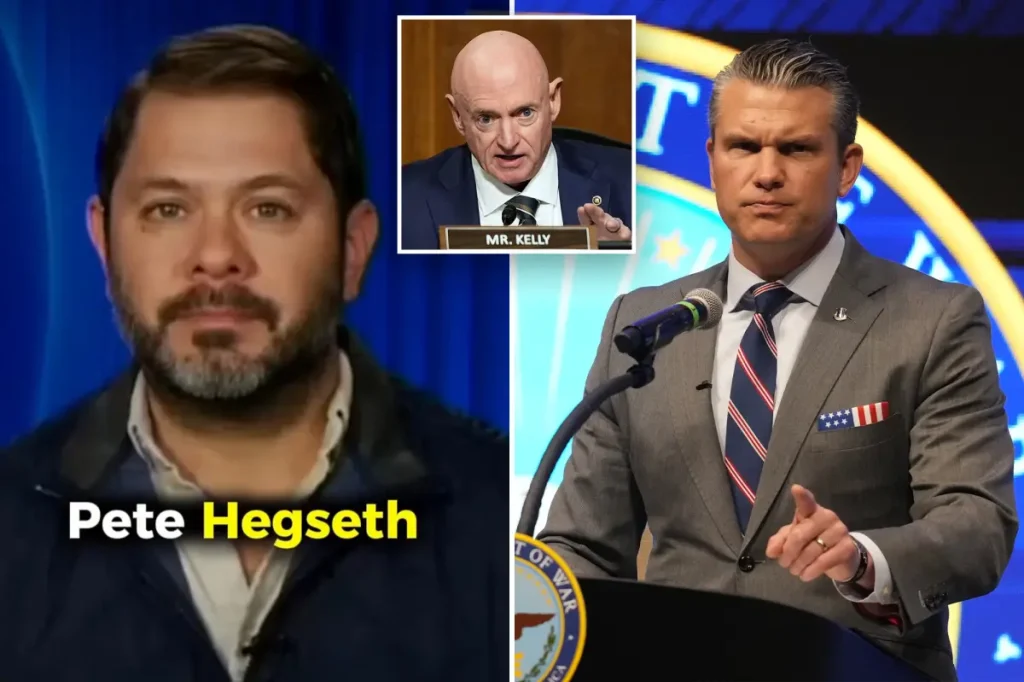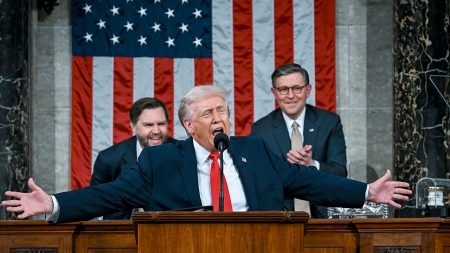Senator Gallego Defends Mark Kelly Against Pentagon Investigation
In a heated exchange that showcases the growing tensions between the Pentagon and certain Democratic lawmakers, Arizona Senator Ruben Gallego fiercely defended his colleague Senator Mark Kelly against an investigation launched by War Secretary Pete Hegseth. This confrontation represents one of the most dramatic clashes between military leadership and elected officials in recent memory, bringing to light fundamental questions about military duty, constitutional rights, and political intimidation.
The controversy centers around a video released by Kelly and five other Democratic lawmakers that reminded service members of their right to refuse illegal orders—a message that President Trump characterized as “seditious behavior at the highest level.” The President went further, calling for the arrest of these lawmakers, whom Hegseth subsequently labeled the “Seditious Six.” The Pentagon’s announcement of an investigation specifically targeting Kelly, a retired naval officer who remains subject to War Department discipline, prompted Senator Gallego’s passionate defense during an appearance on CNN. Gallego, himself a Marine veteran, did not mince words: “You will never, ever, ever even be half the man that Sen. Kelly is. You, sir, are a coward!” His defense continued in a separate social media video where he asserted that Kelly was “just reminding people about their rights as service members” and declared that intimidation tactics would not silence them in their constitutional duty.
Senator Kelly, appearing on “The Rachel Maddow Show,” characterized his statements as “pretty simple and non-controversial,” expressing bewilderment at the severe reaction from the President. “I said that members of the military should follow the law,” Kelly explained, “and in response to that, Donald Trump said I should be executed, I should be hanged, I should be prosecuted.” The senator noted the disturbing implications of the President’s rhetoric, which included phrases like “Go get them,” potentially inciting action against the lawmakers. Kelly’s resolve remained unshaken as he stated firmly: “I think it says a lot more about him than it says about me. He doesn’t want accountability. But Rachel, I’m not gonna be silenced, I’m not gonna be intimidated.”
The context of this confrontation extends beyond personal attacks, touching on significant legislative initiatives by some of the targeted lawmakers. Senator Elissa Slotkin and Representative Jason Crow, both among the “Seditious Six,” have introduced legislation specifically aimed at limiting presidential powers in military contexts. Slotkin’s bill would restrict the President’s ability to deploy the National Guard in American cities, while Crow’s legislation would constrain presidential authority to conduct strikes against suspected drug traffickers in maritime settings. These legislative efforts suggest the lawmakers’ concerns about potential presidential overreach in military matters may be driving their public statements about refusing illegal orders—though none have specified particular orders they believe to be immoral.
War Secretary Hegseth’s formal announcement of the investigation employed strong language, calling the lawmakers’ video “despicable, reckless and false” and asserting that “Kelly’s conduct brings discredit upon the armed forces and will be addressed appropriately.” This unusually direct criticism from a Pentagon official toward sitting members of Congress highlights the extraordinary nature of this conflict. The singling out of Kelly, based on his status as a retired naval officer still subject to military discipline, raises questions about whether military regulations are being weaponized for political purposes or whether genuine concerns about military discipline are at stake.
The confrontation between Senator Gallego and Secretary Hegseth represents more than a personal dispute—it illuminates a fundamental tension in American democracy regarding civilian control of the military, the boundaries of political speech for military personnel and veterans, and the responsibility of elected officials to uphold constitutional principles. As this situation continues to unfold, it will likely test institutional norms regarding the relationship between military leadership and congressional oversight. The passionate defense offered by Senator Gallego, the defiant stance maintained by Senator Kelly, and the aggressive posture adopted by both President Trump and Secretary Hegseth suggest this conflict touches on deeply held convictions about duty, loyalty, and constitutional order that transcend ordinary political disagreements.










